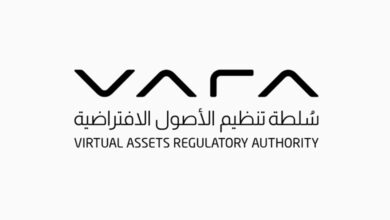UAE’s Post-Greylist Fines Show Crypto’s Unexpected Compliance Strength
UAE Central Bank imposes nearly AED 150 million in fines as crypto compliance emerges strong

Since the UAE’s exit from the FATF grey list in February 2024, the Central Bank of the UAE has demonstrated a strong commitment to enforcing compliance across the financial sector. In recent months, it has imposed significant fines on traditional banks and exchange houses that failed to meet AML and CFT standards. At the same time, the country’s digital asset regulations, established by VARA and ADGM, have proven effective from day one, reflecting a sector that entered the UAE market under strict and coordinated regulatory frameworks.
The past two months alone demonstrate this shift. On May 28, two branches of foreign banks were fined AED 18.1 million. The following day, an exchange house was fined a record AED 100 million. Early June saw another exchange house fined AED 3.5 million, followed by six exchange houses collectively fined AED 12.3 million on June 10. Later that month, a UAE-based bank was fined AED 3.5 million and banned from onboarding new Islamic clients for six months, while another exchange house faced a AED 2 million fine. In early July, a branch of a foreign bank was fined AED 5.9 million, and on July 7, three exchange houses were fined AED 4.1 million for AML/CFT breaches.
These fines are not token gestures. They are significant, frequent, and escalating. The Central Bank has not named the sanctioned institutions, giving them the opportunity to realign without public damage. The message is clear: update your way of working, upgrade your systems, and adapt to the reality that compliance is no longer negotiable.
From a broader perspective, this enforcement wave proves the UAE’s leadership is serious about financial transparency. There is no appetite to risk international trust after years of reform to exit the grey list. These fines will continue until every operator complies.
What is most striking, however, is the contrast with the digital assets sector. For years, virtual assets were viewed with suspicion, assumed to be the weakest link in AML and KYC compliance. But reality tells a different story. Unlike traditional finance, digital assets entered the UAE market under strict, deeply considered regulations. ADGM launched its crypto asset framework in 2018, pioneering a globally respected licensing regime covering exchanges, custody, and tokenisation. VARA followed with its comprehensive Virtual Asset Rulebook in 2022, covering marketing, licensing, AML/CFT, Travel Rule, and operational standards. The Central Bank itself issued dedicated AML/CFT guidelines for virtual assets and VASPs in July 2023, integrating them into the national financial compliance ecosystem from day one.
These frameworks were developed through inter-agency coordination to align with international best practices and FATF standards. The result is a digital assets sector that, despite widespread skepticism, has remained clean and compliant from inception.
This is not to say that crypto is risk-free. But it shows that when regulated with clarity, accountability, and traceability, digital assets can strengthen financial compliance rather than undermine it. Blockchain’s inherent transparency, combined with rigorous VASP licensing under VARA and ADGM, has created a sector operating under stricter controls than many traditional financial operators.
The UAE’s recent fines are a wake-up call for legacy finance, but they are also an endorsement of the country’s approach to digital assets. Crypto, once feared as an AML risk, has become a compliance catalyst, proving that innovation can thrive within robust regulatory frameworks.
In this new era of UAE finance, it is becoming clear: compliance is not only a duty; it is a competitive advantage. And perhaps, unexpectedly, crypto is leading the way.





